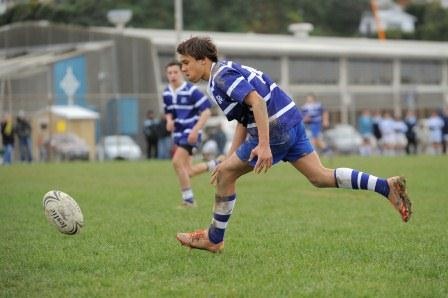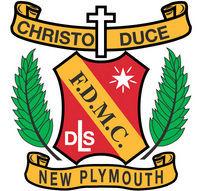- Ruck & Run Drill
- Playing Philosophy – Ruck & Run Coaching Components
- Playing Philosophy – Spread the Forwards
- Playing Philosophy – A forward behind the ruck
- Playing Philosophy – Ruck & Run
- Playing Philosophy – An idea!
- The Breakdown
- Building Positivity [3]
- Building Positivity [2]
- Building Positivity
- Fitness and Game Related Activities
- Getting the Head Working
- Missiles are Dangerous
- Use of Video
- Winger Attacking Outside First-Five
- Player Profiling
- Selection
- Fitness Away from the Team Session
- Playing Philosophy (Pre season Prep)
- Coaching the Coaches
- The Rugby Coordinator and Pre-Season Preparation
- Why Not Use Tap Penalties More Often?
- Why Kick the Ball Down the Middle of the Field?
- Defending the 5 Metre Lineout Drive
- Scoring from the 5 Metre Lineout
- What are the Kicking Team Aiming to Achieve from Halfway Restart
- Should We Practice Scoring Tries?
- Team Culture
- Looking After Your Players
- Coach Survival Tips
- Under 11/13 – Backline Defence
- Under 11/13 – Ruck Defence
- Under 11/13 – Back Attack
- Under 13 – The Counter Attack
- Under 11/13 – The Maul
- Under 11/13 – Lineouts
- Under 11/13 – Decision Making
- Under 11/13 – Support Play
- Under 11/13 – Dive Pass and More
- Under 11/13 – Drop & Grubber Kick /Highball Catch
- Under 11/13 – Front on Tackling
- Under 11/13 – Contact – Getting Up – The Ruck
- Under 11/13 – The Coaching Session
- Under 8/10 – Using Space
- Under 8/10 – Kicking
- Under 8/10 – Contact and Picking Up the Ball
- U8/U10 Draw & Pass and Sidestep
- Under 8/10 – The Tackle
- Under 8/10 – The Coaching Session
- Under 7 – Test Your Coaching – Support Play
- Tap Pass and Swerve U7
- Ball Familiarisation; Passing & Receiving
- Activities for the Non-Contact Tackle
- Under 7 – The Coaching Session
- Coaching Teenagers – After the Ruck
- Coaching Teenagers – The Practice Session
- Coaching Teenagers – Best Practice
- Coaching Kids – Best Practice
- Plays from a Tap Penalty
- Running Plays from a 5 Man Lineout
- Driving Plays from a 5 Man Lineout
- Strike Plays at the End of the Lineout
- Back Strike Plays at the Lineout
- Wide Strike at the Scrum (2)
- Wide Strike at the Scrum
- Midfield Attack at the Scrum
- No 8 Plays at the Scrum (2)
- No 8 Plays at the Scrum
- The Cut Out Pass
- Skills to Penetrate (2)
- Skills to Penetrate
- Movements to Penetrate
- Patterns to Penetrate
- Contact and Continuity
- Keeping the Ball Alive Out Wide
- Pre Season Support Activities
- Checklist
- Understanding the game
- The Playing Philosophy
- The Lineout
- Overview
- Team Profile
- Start Now!
- Backrow
- Nine and Ten
- Rugby-related Fitness Activities
- The Psychological Edge
- Open Field Play
- Key Performance Indicators
- Improving Team Performance
- Backline Attack Concepts
- Tactics at Phase Play
- Playing Philosophy
- The ‘Stop Focus’
- Kick Attack
- Clearing the 22
- Wide Attack at Phase
- Player Focus
- Scrum Preparation
- Lineout Preparation
- Back Attack Preparation
- Sevens Preparation
- Sevens Kick Offs
- Sevens Scrum and Lineout
- Sevens Attack Patterns
- Sevens Defence
- 7's Selection and Game Planning
- Coaching and Leadership
- How the Game Evolves
- Changing Within the Game
- Learning from the Television.
- Using Tap Penalties Wisely
- Defence Drills
- Defence Drills for Tight Five
- Team Defence and TUB’ing
- Establishing Patterns from the Ruck
- Structured Phase Play
- Structuring Phase Play on the Run
- Coaching Roles
- Structuring a Close in Tackling/Defensive Session
- Coaching in Threes
- Attacking Back Play
- Kick Off Chase
- Wrap Around Back Plays
- Lineout Plans
- Looking and Learning
- Motivating Your Players
- Scrum Attack
- Refocusing the Team
- Monitoring the Progress
- Learning the Game
- Playing to the Laws
- Small is OK
- Decisions After the Tackle
- Improving Your Coaching
- Food for Thought
- More Food for Thought
- Passing & Catching
- How Ireland Nearly Beat the All Blacks
- The Progressive Coach
- Try Something New
- Encouraging Excitement
- The Mental Approach
- Where to Start
- Being the Best You Can Be
- Off the Ball Decisions
- Lineouts Difficult to Master
- Decisions on the Run
- Rucking and Rolling
- A Successful Approach
- Gaining Clarity
- Manipulation vs Physicality
- Beating the Drift
- To Ruck or Not to Ruck
- Stopping the Lineout Drive
- Fine Tuning the Planning
- It's a Running Game
- RugbySmart 2015
- Using the Shoulders
- Loosehead Prop / Tighthead Prop
- Position Specific – Hooker
- Position Specific – Lock
- Position Specific – Blindside Flanker
- Position Specific – Openside Flanker
- Position Specific – No 8
- Position Specific – Halfback
- Position Specific – First Five Eighth
- Position Specific – Second Five Eighth
- Position Specific – Centre Three-quarter
- Position Specific – Wing
- Position Specific – Fullback
Small is OK

Small is Okay
It has been a pleasure watching the local Francis Douglas Memorial College 1st XV playing this season to appreciate that big isn’t always better.
This is a boy’s school with a medium sized role and medium sized players, glued together with high quality school and individual values and a ton of enthusiasm for the game of rugby.

I’m sure there are many other schools with the same values but within this environment there are a number of factors which have lead to this squad of boys having a great deal of success on the playing field, which is obviously one of the aims when coaching at this level.
The main ingredient which has gelled this group in to a good team and a great bunch of boys is provided by Head Coach and MIC Rugby & Sport, Tim Stuck, who believes in developing the person ahead of the player. This is a school where rugby is important but not at the expense of all else.
Cricketers are not released until the end of cricket season, allowances are made for the top basketballers to play rugby in a team that only practices occasionally, top rugby players are invited to attend extra sessions run by the TRFU and the school but they are not compulsory and not too demanding on the students time, and educational standards need to be met according to the level of the student rather than rugby getting in the way of studying.
Along with assistant coach Steve Simpson, who has also had his turn as Head Coach, the boys are provided with two individuals who believe in quality coaching time rather than a large quantity of time. This has kept this squad keen and enthusiastic and obviously always looking forward to the training sessions. This enthusiasm has been infectious and carried on in to the games.
The real key from these two coaches though is that they understand the strengths and weaknesses of their individuals and they have devised a game plan that suits. It sounds like an obvious thing to do but if you look around you will see much coaching based on how the coaches used to be coached, on what is seen on television from a whole host of professional teams that are so limited in their approach it appears as though every team has the same coach, and from information taken from coaching clinics which do not differentiate between individuals and teams because of their nature.
This is a smallish team that rely on good technique at the contact to produce quick ball, a clear understanding and plan of how to move the ball by hand and create threats for the opposition without having to make contact at every opportunity, and a technically well drilled team at set pieces. It is a pleasure to watch them play without neither an overload of hitting in to contact nor passing the ball without purpose.
Of course there are a couple of other ingredients which drive this group and they may be harder to find in other teams. The captain Cameron Keech is a thinking man’s prop with the ability to perform all captaincy and playing tasks with thought and skill; there are two Barretts and a Crowley which provide plenty of rugby pedigree and open side flanker Liam Doherty is a leading academic in the school. Not all teams are this fortunate.
This group do provide plenty to ponder over when you are looking at ways of coaching your team.
• Quality rather quantity when it comes to training.
• Coach according to the strengths of your players and don’t copy others unnecessarily.
• Empower the boys. You’d be surprised how much they have to offer.
• Make sure they are enjoying themselves.
• Understand your players and develop their uniqueness as individuals and players.
Good luck.